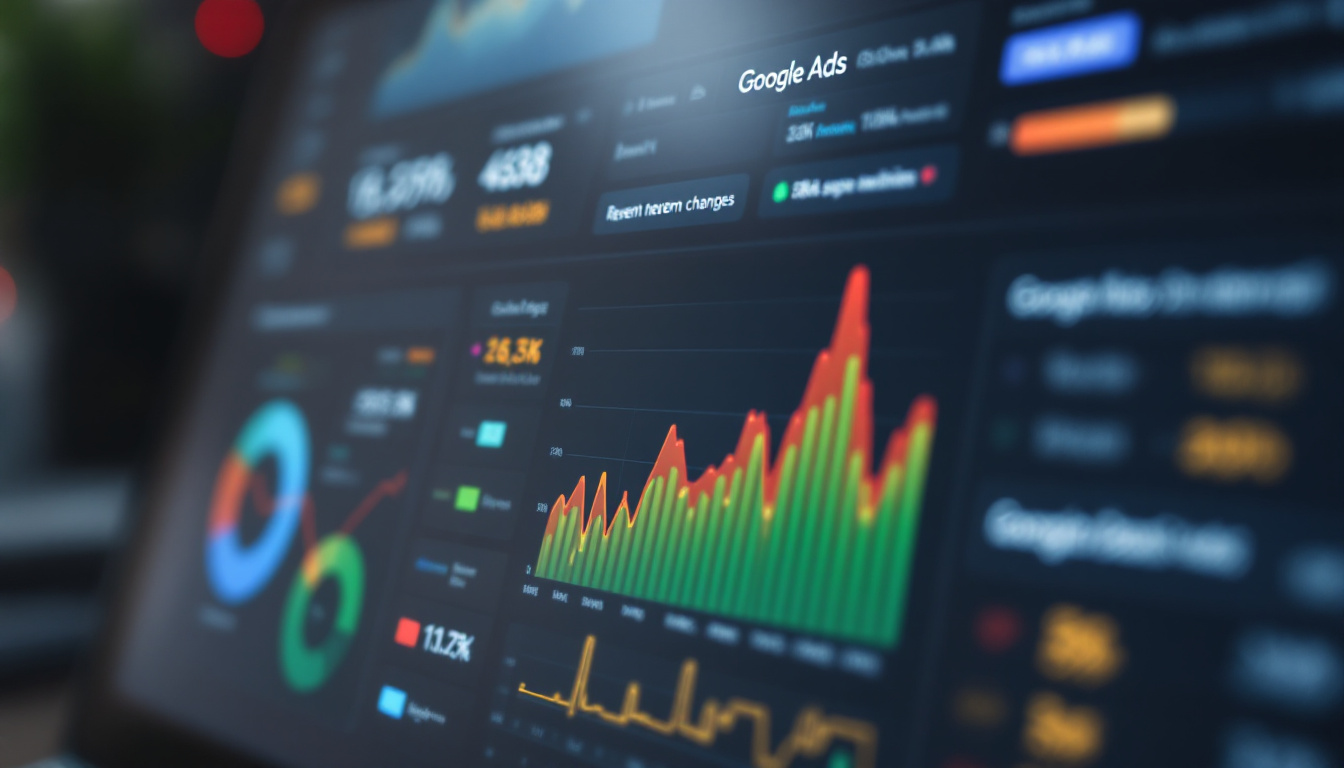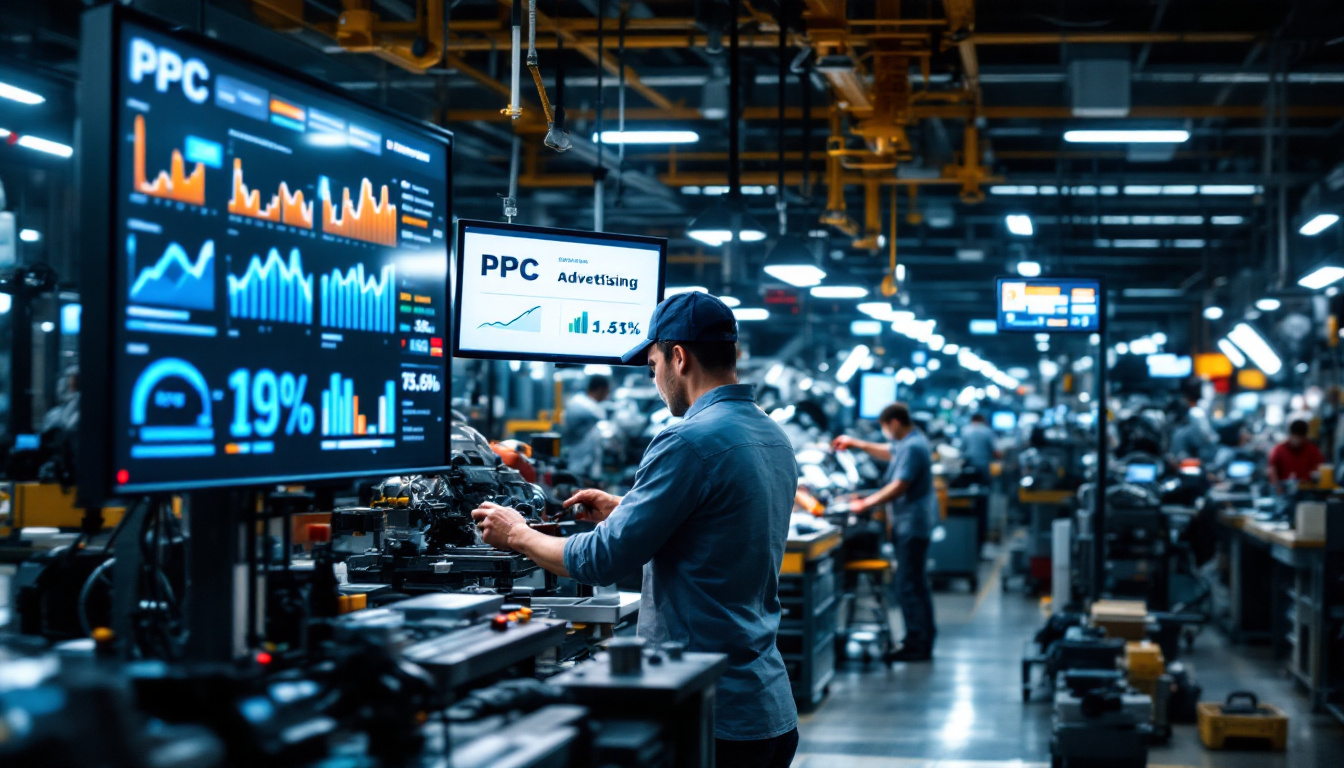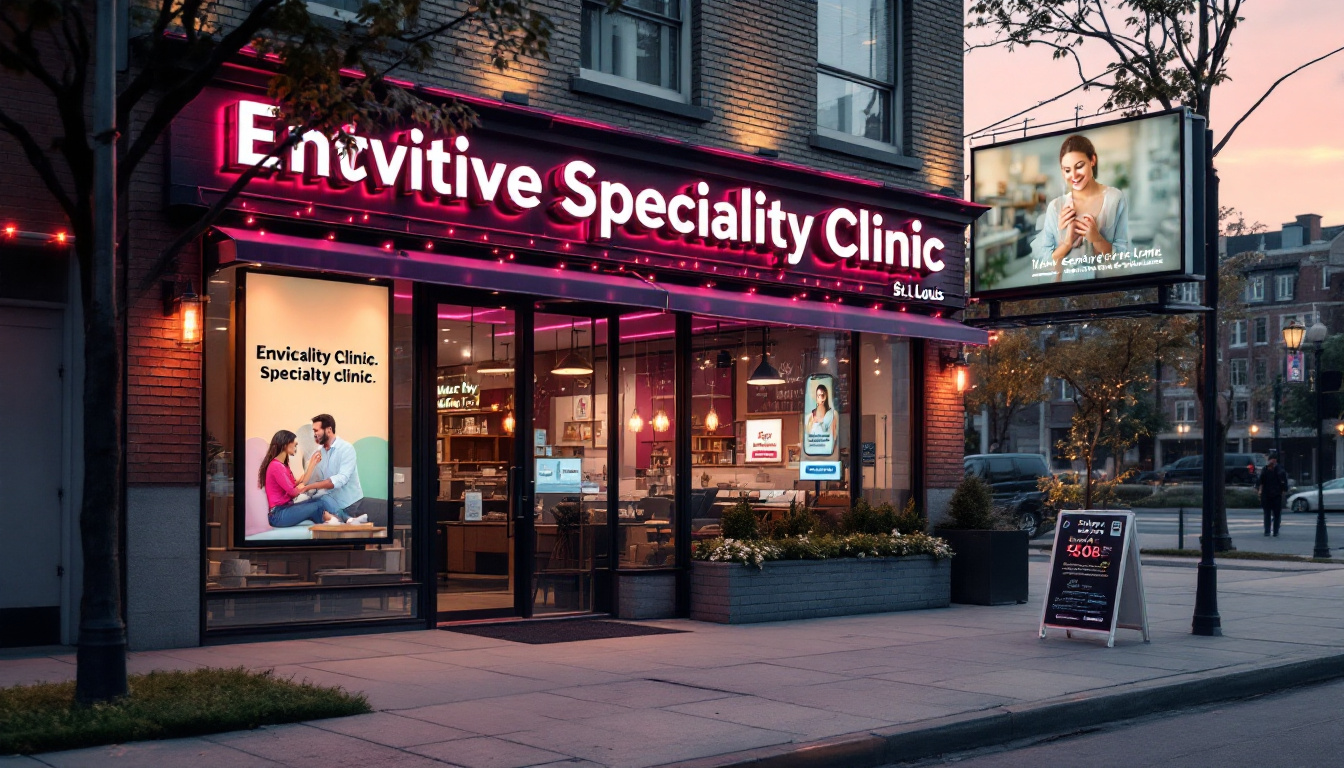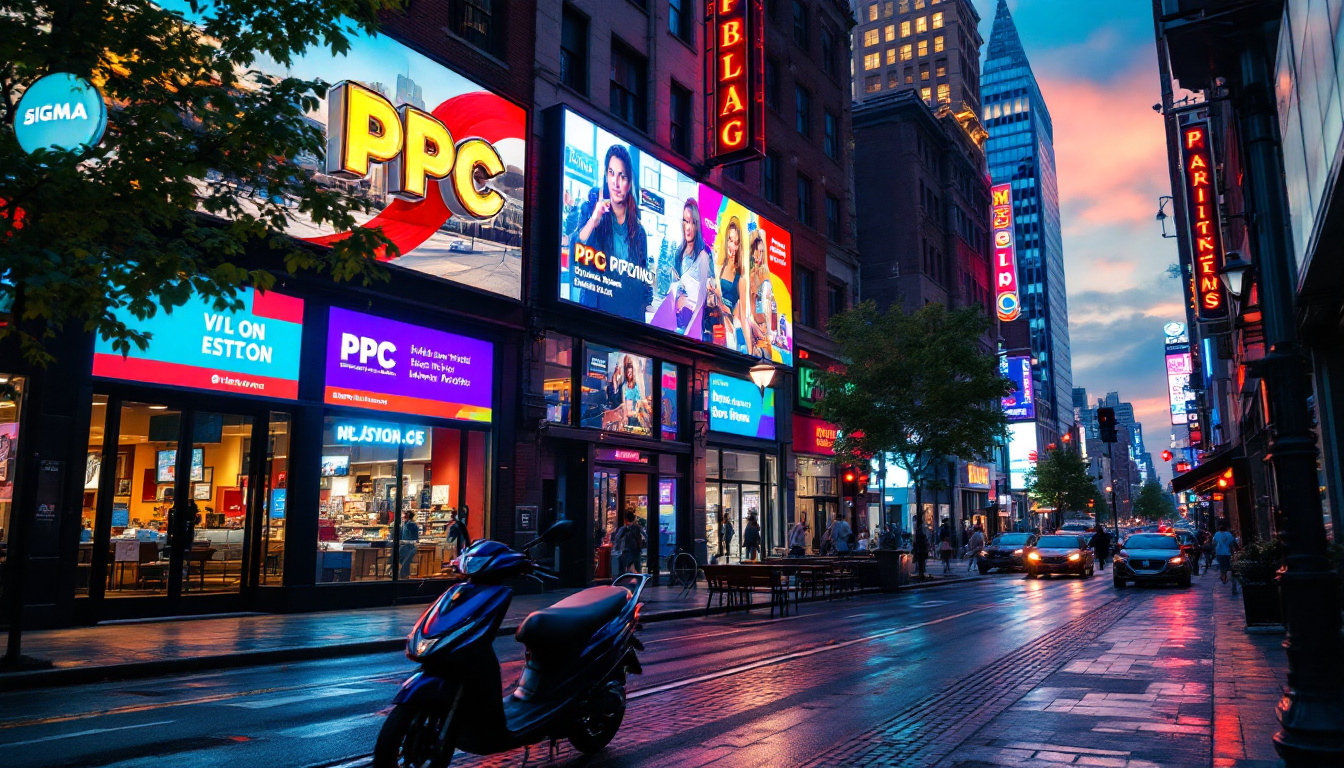What St. Louis, MO Businesses Should Know About Google Ads Updates

As digital marketing evolves, it's crucial for businesses in St. Louis, MO, to stay informed about the latest tools and tactics that can enhance their advertising strategies. One of the most significant platforms for online advertising is Google Ads. With frequent updates to features and algorithms, it’s essential to understand how these changes can impact your business and what steps you can take to optimize your campaigns. This article delves deep into the latest updates and provides valuable insights specifically for local businesses.
Understanding the latest Google Ads updates
Google Ads updates often come in waves, introducing new features or modifying existing ones to improve the user experience and effectiveness of ads. Recently, Google has rolled out a series of updates, including enhancements to automated bidding strategies, changes to ad formats, and improvements to audience targeting capabilities.

Companies can take advantage of these updates to reach their audiences more effectively. Some updates, such as the introduction of Performance Max campaigns, allow advertisers to leverage machine learning to optimize ad performance across all of Google’s inventory, including Search, YouTube, and Display Networks. This shift towards a more integrated advertising approach presents both opportunities and challenges for businesses looking to remain competitive.
Why keeping up with updates is essential
Staying abreast of Google Ads updates is vital for several reasons. First, it ensures that your advertising strategies remain effective and relevant. For instance, if Google introduces a new ad format that garners more engagement, without adapting your campaigns accordingly, you may miss out on valuable leads.
Secondly, Google’s updates can significantly affect your bidding strategies and budget allocation. Ignoring these changes can lead to wasted ad spend or subpar performance compared to competitors who adapt to these shifts. Therefore, regularly updating your knowledge about Google Ads is an investment in your business's potential growth and visibility.
Moreover, understanding these updates can enhance your ability to analyze performance metrics effectively. With the introduction of new features, such as enhanced conversion tracking and improved reporting tools, businesses can gain deeper insights into customer behavior and campaign effectiveness. This data-driven approach allows for more informed decision-making, enabling advertisers to pivot strategies quickly in response to real-time feedback.
Additionally, the evolving landscape of digital advertising means that consumer preferences and behaviors are constantly changing. Keeping up with Google Ads updates not only helps you to stay competitive but also allows you to anticipate trends and shifts in the market. By proactively adapting your advertising strategies, you can position your brand as a leader in your industry, ultimately fostering stronger relationships with your target audience and driving long-term success.
How updates impact your PPC strategy
The impact of Google Ads updates on your Pay-Per-Click (PPC) strategy can be profound. As algorithms evolve and new features are implemented, the way your ads are displayed and the cost you incur can fluctuate dramatically. For example, updates that shift focus to automation can reduce the time spent on manual adjustments while increasing efficiency. These changes often introduce new bidding options, such as Target CPA or Target ROAS, which can help advertisers optimize their campaigns based on specific performance goals. However, these automated features also require a nuanced understanding of how they interact with your existing data and objectives.
However, understanding these updates is essential to ensure you can adjust your bidding strategies effectively. Automated bidding strategies may yield better results in certain scenarios, but they require a foundational understanding of your advertising goals to implement effectively. For St. Louis businesses, aligning your objectives with these evolving algorithms can mean the difference between a successful campaign and one that falters. Additionally, keeping abreast of industry trends and competitor strategies can provide valuable context, allowing you to anticipate shifts in consumer behavior and adjust your PPC approach accordingly.
Aligning your goals with PPC changes
To effectively align your PPC strategy with Google Ads updates, it’s crucial to conduct regular audits of your existing campaigns. Review the performance metrics regularly and assess what aspects have changed since the updates were implemented. This allows you to identify areas where adjustments are needed, whether that involves refining targeted audience segments or reconsidering your bidding methods. Utilizing tools like Google Analytics can provide deeper insights into user behavior, helping you make data-driven decisions that enhance your campaign performance.
Moreover, collaboration within your marketing team is vital. Share insights from recent updates and discuss how these can positively or negatively affect your campaigns. Being proactive about these changes can empower your team and help them work efficiently toward achieving your advertising goals. Regular brainstorming sessions can also foster creativity, allowing team members to propose innovative strategies that leverage the latest features offered by Google Ads. By cultivating a culture of continuous learning and adaptation, your team can stay ahead of the curve and maximize the effectiveness of your PPC efforts in an ever-changing digital landscape.
Adapting campaigns to new Google features
Adapting your campaigns to the latest Google Ads features is not just about adopting new tools; it involves strategic planning. For instance, if you notice that local search ads are performing better after an update, you may want to integrate more location-based targeting into your campaigns to tap into local clientele in St. Louis. This means not only adjusting your ad copy to reflect local culture and interests but also considering the timing of your ads to align with local events or peak shopping times. By doing so, you can create a more personalized experience for potential customers, increasing the likelihood of engagement and conversion.
Additionally, experimenting with new ad formats, such as video ads on YouTube or responsive search ads, can further enhance your campaign’s reach and effectiveness. Google often rolls out new features that cater to diverse types of content consumption, so embracing these advancements can provide a competitive edge in your market. For example, utilizing video ads allows you to tell a more compelling story about your brand, showcasing products in action or sharing customer testimonials, which can significantly boost viewer retention and interest.
Strategies for successful adaptation
To successfully adapt to new features, consider the following strategies:
- Invest time in learning about each update and its potential implications.
- Implement A/B testing to gauge how new features perform in your campaigns compared to traditional methods.
- Attend workshops or webinars to get hands-on experience and expert insights.
- Leverage Google’s support resources, including their dedicated digital marketing advisory services.
By using these strategies, St. Louis businesses can foster an agile marketing approach, quickly adapting their campaigns to the evolving digital ecosystem. Moreover, it’s essential to stay connected with industry trends and competitor strategies, as this can provide valuable insights into how others are leveraging new Google features. Networking with other marketing professionals through local meetups or online forums can also spark innovative ideas and collaborative opportunities that enhance your campaign effectiveness. Keeping an open line of communication with your team and stakeholders about these adaptations ensures everyone is aligned and can contribute to the overall success of your marketing initiatives.
The role of automation in modern PPC campaigns
Automation has become a cornerstone of PPC strategies, alleviating the burden of manual adjustments and providing advertisers with enhanced capabilities. Google Ads updates increasingly focus on automating bidding and targeting processes, allowing businesses to concentrate on strategic planning rather than repetitive tasks.
These automated solutions utilize machine learning to analyze vast data sets to optimize ad spending and improve targeting. For local St. Louis businesses, effectively harnessing these tools can lead to improved return on investment and enhanced ad performance. By leveraging automation, businesses can ensure that their ads reach the right audience at the right time, maximizing the chances of conversion and customer engagement. This is particularly beneficial in a competitive market where every click counts and the cost of advertising can quickly add up.
Benefits and challenges of automation
While automation can significantly boost campaign efficiency, it also presents challenges. Many businesses may perceive a lack of control over automated systems, fearing that they may not allocate budget effectively. It’s vital to strike a balance where automation complements human insights instead of replacing strategic decision-making. Moreover, the complexity of automated systems can sometimes lead to unexpected outcomes, such as overspending on poorly performing ads or misaligned targeting that does not resonate with the intended audience.
Regular monitoring and assessing automated performance metrics are crucial. This should involve understanding when to intervene in automated processes to adjust budgets or targeting as business goals change. Additionally, it’s essential to stay updated with the latest trends and features in automation tools, as they are constantly evolving. Engaging in continuous learning and adapting strategies accordingly can empower businesses to make the most of automation, ensuring that they not only keep pace with industry changes but also leverage new opportunities for growth and customer acquisition.
Key takeaways from recent Google Ads changes
In summary, the updates to Google Ads carry significant implications for businesses in St. Louis, MO. Understanding these changes and how they can influence your PPC strategy is essential for maintaining a competitive edge. Here are some key takeaways:

- Stay informed about the latest updates to leverage new features effectively.
- Regularly assess your PPC strategies to ensure alignment with Google's evolving algorithms.
- Embrace automation while maintaining control over campaign performance.
- Adapt campaigns to utilize new ad formats and features for increased visibility.
- Focus on collaboration and ongoing education within your marketing team.
By following these guidelines, businesses can navigate the changing landscape of Google Ads more effectively, driving growth and success through well-informed advertising strategies.

As a Google Ads expert, I bring proven expertise in optimizing advertising campaigns to maximize ROI.
I specialize in sharing advanced strategies and targeted tips to refine Google Ads campaign management.
Committed to staying ahead of the latest trends and algorithms, I ensure that my clients receive cutting-edge solutions.
My passion for digital marketing and my ability to interpret data for strategic insights enable me to offer high-level consulting that aims to exceed expectations.





























